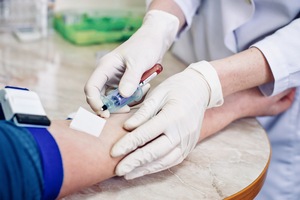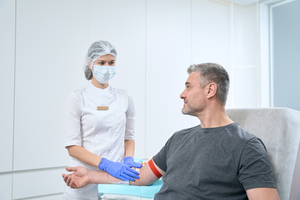Book urgent care & walk-in clinics near me in Seattle, WA
Own a clinic? Add your location.
Help patients book appointments with you on Solv. It's free!
20 instant-book locations

ZoomCare, South Lake Union
ZoomCare
Today
View more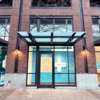
Today
View more
ZoomCare, Queen Anne
ZoomCare
Today
View more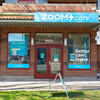
Today
View more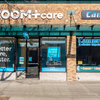
Today
View more
Today
View more
ZoomCare, Capitol Hill Broadway & Mercer
ZoomCare
Today
View more
Today
View more
Today
View more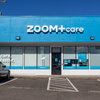
ZoomCare, West Seattle
ZoomCare
Today
View more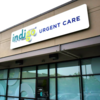
MultiCare Indigo Urgent Care, Rainier
MultiCare Indigo Urgent Care
Today
View more
MultiCare Indigo Urgent Care, Wallingford
MultiCare Indigo Urgent Care
Today
View more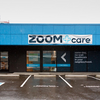
ZoomCare, Bellevue & 4th
ZoomCare
Today
View more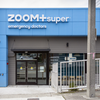
ZoomCare Super, Bellevue Super
ZoomCare Super
Today
View more
Today
View more
MultiCare Indigo Urgent Care, Bellevue
MultiCare Indigo Urgent Care
Today
View more
ZoomCare, Shoreline
ZoomCare
Today
View more
MultiCare Indigo Urgent Care, Kirkland
MultiCare Indigo Urgent Care
Today
View more
MultiCare Indigo Urgent Care, Burien
MultiCare Indigo Urgent Care
Today
View more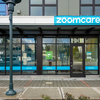
ZoomCare, Kirkland Totem Lake
ZoomCare
Today
View moreOwn a clinic? Add your location.
Help patients book appointments with you on Solv. It's free!
Discover Seattle Healthcare with Solv
Seattle, often called the Emerald City because of its stunning landscapes, is also home to a vibrant culture and diverse neighborhoods. As you navigate this bustling metropolis, you'll find that urgent care clinics are strategically located throughout the city, providing residents and visitors with easy access to medical assistance when needed.
In the lively Capitol Hill neighborhood, you can find urgent care services at ZoomCare on Broadway and Kaiser Permanente Capitol Hill Campus on 16th Ave. — conveniently situated near popular spots like Pike Market and the iconic Space Needle. Moving to the eclectic Fremont area, clinics are located close to the Fremont Troll and the scenic Lake Union, including UW Medicine Primary Care at Fremont located in the Burke Building, and ZoomCare located in the Epicenter Apartments. These locations ensure that care is just around the corner for those enjoying the local arts scene.
West Seattle, known for its stunning views of the Seattle skyline from Alki Beach, also hosts urgent care facilities, making it easy for residents to seek medical attention without traveling far. Top-rated facilities in this area include MultiCare Indigo Urgent Care on California Ave. and ZoomCare on Alaska St., as well as Franciscan Urgent Care West Seattle. Swedish Primary Care on Alaska St. is also a great option. In Green Lake, a neighborhood famous for its picturesque park and recreational activities, urgent care options are available near major roadways, including West Seattle Community Clinic.
Magnolia, a serene residential area, features urgent care clinics that cater to families and individuals alike, while the University District, home to the University of Washington, offers several clinics to serve the vibrant student population — including UW Medicine Urgent Care at Ravenna and MultiCare Indigo Urgent Care on 45th St. Just south of the city, MultiCare Indigo Urgent Care Burien provides urgent care services for travelers and locals alike, conveniently located near the Seattle-Tacoma International Airport.
Further south, Tacoma offers a variety of urgent care options, including MultiCare Indigo Urgent Care Tacoma — while University Place, known for its family-friendly environment, ensures residents have access to medical care close to home with Franciscan Urgent Care on Market Pl. and MultiCare Indigo Urgent Care on Bridgeport Way. In Ballard, a neighborhood rich in maritime history and culture, clinics are situated near the Ballard Locks and the bustling Sunday Farmers Market, including UW Medicine Urgent Care at Ballard.
Queen Anne, famous for its stunning views from Kerry Park, is home to several urgent care facilities that cater to both residents and visitors enjoying the area’s scenic overlooks — including ZoomCare on Queen Anne Ave. and MinuteClinic inside CVS, also on Queen Anne Ave. Belltown, located just north of downtown Seattle, features urgent care services within walking distance of the Seattle Convention Center and the Museum of Pop Culture (MoPOP), including ZoomCare on 2nd Ave and UQ Medicine Primary Care at Belltown, also on 2nd Ave.
Downtown Seattle is a hub of activity, with urgent care clinics, like Overlake Clinic located Downtown and Bellevue Urgent Care, both conveniently located near major landmarks such as the Seattle Great Wheel and Chihuly Garden and Glass. As you explore the city, you can rest assured that quality medical care is always within reach, whether you’re visiting the historic Pike Market or enjoying a leisurely stroll along the waterfront.
With major roadways and intersections connecting these neighborhoods, including I-5 and SR 99, navigating to the nearest urgent care clinic is hassle-free, allowing you to focus on enjoying all that Seattle has to offer.
How Much Does Urgent Care Cost In Seattle?
The cost of urgent care in Seattle can differ based on several factors, such as the services needed, the clinic's location, and your insurance coverage. Typically, urgent care centers provide a more budget-friendly option compared to emergency rooms for non-life-threatening issues.
Many clinics in the Seattle region accept various insurance plans, and some may have self-pay options for those without insurance. It's a good idea to contact individual clinics to inquire about their payment policies and any extra fees for specific treatments or procedures to better understand the total costs involved.
What is the cost of an urgent care visit in Seattle without insurance?
The cost of an urgent care visit in Seattle without insurance ranges, depending on the clinic and the services provided. Basic consultations may be on the lower end of this range, while additional treatments, tests, or procedures can increase the total cost. It's always a good idea to contact the specific urgent care facility for detailed pricing information before your visit.
What Conditions are Treated in Seattle?
Urgent care clinics in Seattle are equipped to handle a wide range of non-life-threatening conditions. Commonly treated issues include minor injuries such as sprains, strains, and fractures, as well as illnesses like colds, flu, and infections.
Urgent Care clinics also provide services for skin conditions, allergic reactions, and gastrointestinal issues. Additionally, some urgent care facilities are equipped to perform diagnostic tests, such as X-rays and lab work, and offer vaccinations and preventive care. This makes them a convenient option for individuals seeking immediate medical attention without the long wait times often associated with emergency rooms.
Seattle Urgent Care FAQs
Where can I find the best urgent care center in Seattle?
The best urgent care center in Seattle can vary based on individual needs and preferences, but popular options often include facilities with high patient ratings, convenient locations, and comprehensive services. You can use SolvHealth to review online reviews and local health resources and get help identifying top-rated centers.
What are the typical wait times at Seattle urgent care centers?
Typical wait times at Seattle urgent care centers can range, depending on the time of day and patient volume. Visiting during off-peak hours can often result in shorter wait times.
Which urgent care centers in Seattle are open 24/7?
Most urgent care centers in Seattle offer services in the evening and on the weekends. It's best to check directly with specific clinics for their hours of operation.
Do urgent care centers in Seattle accept walk-ins, or do I need an appointment?
Most urgent care centers in Seattle accept walk-ins, allowing patients to receive care without a prior appointment. However, some clinics may offer online check-in options to reduce wait times.
Can I get a COVID-19 test at an urgent care center in Seattle?
Yes, many urgent care centers in Seattle offer COVID-19 testing, including rapid and PCR tests. It's advisable to check with the specific clinic regarding availability and testing protocols.
What other services do Seattle urgent care centers provide beyond basic medical care?
Beyond basic medical care, Seattle urgent care centers often provide services such as vaccinations, lab testing, X-rays, sports physicals, and treatment for minor injuries and illnesses.
Are there pediatric urgent care centers in Seattle?
Yes, there are pediatric urgent care centers in Seattle that specialize in treating children and adolescents, providing age-appropriate care and services tailored to younger patients. Seattle Children’s Hospital has urgent care clinic locations in Bellevue, Evertt, Downtown Seattle, and Federal Way — as well as a virtual urgent care option.
How do I choose between an emergency room and urgent care in Seattle?
To choose between an emergency room and urgent care in Seattle, consider the severity of the condition. If it is life-threatening or requires immediate, specialized attention, the emergency room is the best option. For non-life-threatening conditions that need prompt care, urgent care is typically more appropriate and cost-effective.
What are the most highly rated urgent care centers in Seattle?
At the time of this publication, some of the most highly rated urgent care centers in Seattle include Swedish Urgent Care and UW Medicine Urgent Care — both known for their quality of care, patient satisfaction, and convenient services. Checking online reviews and ratings with SolvHealth can provide additional insights.
Top 7 Local FAQs About Seattle Healthcare
Why do urgent care centers close at 8 pm?
Urgent care centers often close at 8 pm to balance patient demand with operational costs, ensuring they can provide quality care during peak hours while managing staffing and resources effectively.
Can an urgent care provider in Seattle treat more serious conditions?
Urgent care providers in Seattle can treat a variety of non-life-threatening conditions, but for serious or life-threatening issues, patients should seek care at an emergency room.
What do urgent care centers treat?
Urgent care centers treat a range of conditions, including minor injuries, illnesses, infections, and provide services such as vaccinations, lab tests, and X-rays.
Low-cost healthcare with no insurance?
Many urgent care centers offer low-cost healthcare options for individuals without insurance, often providing self-pay discounts or sliding scale fees based on income.
What is healthcare for low-income people in WA?
In Washington, low-income individuals can access healthcare through programs like Apple Health (Medicaid), which provides comprehensive coverage, including urgent care services.
Which Seattle urgent care centers offer COVID-19 testing?
Many Seattle urgent care centers, such as Swedish Urgent Care and CityMD, offer COVID-19 testing. It's best to check with specific locations for availability and testing protocols.
Do Portland or Seattle have better hospitals?
Both Portland and Seattle have reputable hospitals, but the quality of care can vary by specialty and individual hospital. You can use SolvHealth to compare specific hospitals and their services can help determine which city may better meet particular healthcare needs.
Common Health Insurance Companies in WA
Common health insurance companies in Washington include a variety of providers offering a range of plans. Some of the top insurance providers in the state are:
-
Blue Cross Blue Shield Association
-
Aetna
-
UnitedHealthcare
-
Cigna Health and Life Insurance Company
-
Oscar Health
-
Kaiser Permanente
-
Scott and White Health Plan
-
Superior HealthPlan
-
Community Health Choice
-
Humana
-
Molina Healthcare Inc
-
Ambetter
-
UnitedHealthcare Insurance Company
These companies provide various coverage options, including individual, family, and employer-sponsored plans, catering to diverse healthcare needs.
Seattle Healthcare News in 2024
-
Mobile Urgent Care Helps Overcrowded Emergency Rooms
The Seattle Times (June 16, 2024) -
Seattle Children's Hospital opens first mental health urgent care clinic in Washington
KOMO News (October 9th 2024) -
Seattle Children's Orthopedic Injury Urgent Care Opening October 2024
Seattle Children's Hospital (September 4, 2024)
Solv has strict sourcing guidelines and relies on peer-reviewed studies, academic research institutions, and medical associations. We avoid using tertiary references.
Related Searches
Drug Test in Seattle, WA
Thyroid Test in Seattle, WA
Hepatitis test in Seattle, WA
Allergy Testing in Seattle, WA
Diabetes Test in Seattle, WA
Pulmonary Function Test in Seattle, WA
Mono Test in Seattle, WA
Glucose Test in Seattle, WA
Pediatric Urgent Care in Seattle, WA
Blood Test in Seattle, WA
CMP Test in Seattle, WA
RSV Test in Seattle, WA
Urinalysis in Seattle, WA
Basic Metabolic Panel in Seattle, WA
TB Test in Seattle, WA
STD Testing in Seattle, WA
Flu Test in Seattle, WA
Vitamin D Test in Seattle, WA
Pregnancy Test in Seattle, WA
Strep Test in Seattle, WA
Cholesterol Test in Seattle, WA
DOT Exam in Seattle, WA
DNA Test in Seattle, WA
H Pylori Test in Seattle, WA
Diagnostic Test in Seattle, WA
COVID-19 Pill in Seattle, WA
Ear Wax Removal in Seattle, WA
COVID-19 Testing in Seattle, WA
A1C Test in Seattle, WA
Lab Tests in Seattle, WA
Retail Clinic in Seattle, WA
Sports Physicals in Seattle, WA
Dermatologists in Seattle, WA
Aetna Urgent Care
Blue Cross Blue Shield Urgent Care
Cigna Urgent Care
COVID-19
Flu
United Health Urgent Care
» All services in Seattle, WAFind urgent care
Nearby cities
Popular Brands in Seattle
Everyday Healthcare, Simplified
Expert advice to help you live your best life

